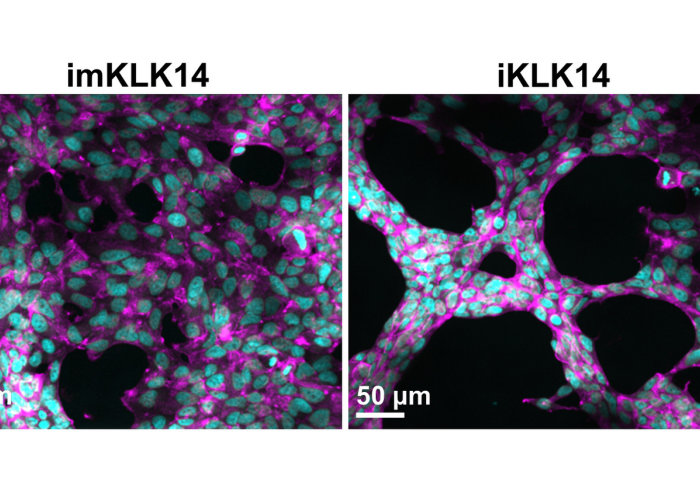Molecular function of KLK14

The Tate group recently published findings that KLK14 expression is higher than normal in advanced cases of prostate cancer
Dr Scott Lovell contributed research to a recent publication in Molecular Oncology, focussing on the protein KLK14. The new missive includes analysis of expression levels from tumour samples from patients, as well as investigation of protein, mRNA and functional details. Dr Scott Lovell completed his PhD in the Tate group last year, and his studies focussed on KLK targets in drug resistant cancers.
KLK14 is a peptidase which can degrade other proteins in the cell, and was previously known to function in prostate cancers. The experiments showed that KLK14 levels were lower in prostate cancer samples from patients who had responded to neoadjuvant therapy, and conversely that KLK14 levels recovered in patients who developed castrate-resistant prostate cancer.
The research has highlighted the role of KLK14 in aggressive prostate cancers, and suggests that it could provide a good target for future therapeutic intervention.
Dr Lovell collaborated with researchers from Queensland University of Technology, Translational Research Institute and The University of Queensland, Australia; University of British Columbia, Canada; and University of Gdansk, Poland. Scott’s PhD funding was supplied by the Engineering and Physical Sciences Research Council.
Article text (excluding photos or graphics) © Imperial College London.
Photos and graphics subject to third party copyright used with permission or © Imperial College London.
Reporter
Edward Bartlett
Department of Chemistry